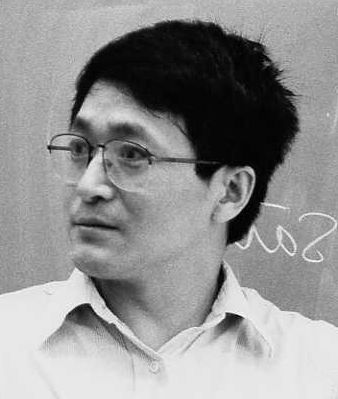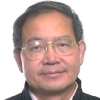Mailing List : To receive
updates on the program please subscribe to our mailing list at www.fields.utoronto.ca/maillist
Outline of Scientific Activities
The theory of diophantine geometry has a long rich history dating
back all the way to the Greek schools and culminating in the great
breakthrough in the 1980s by Faltings in the resolution of the Mordell
Conjecture and the proof by Wiles of Fermat’s Last Theorem
in 1994 concerning the non-existence of integer solutions of the
Fermat polynomial xn + yn = zn
. A natural next step is to study analogous questions in higher
dimension, namely, solutions of polynomials of more variables. Analogous
questions are also investigated by algebraic geometers, searching
for solutions over function fields; by complex geometers, searching
for meromorphic solutions. Techniques and theories developed in
various different branches of mathematics can be brought together
to solve these and other problems. One of the goals of this program
is to provide a platform of communication by bringing together researchers
from different fields.
Clay Mathematics Institute Senior Scholar
|
|
Henri
Gillet, Department of Mathematics, Statistics, and Computer
Science, University of Illinois at Chicago
The Clay Mathematics Institute Senior Scholars program
aim is to foster mathematical research and the exchange
of ideas by providing support for senior mathematicians
who will play a central role in a topical program at an
institute or university. Senior Scholars will be in residence
for a substantial fraction of the program and are expected
to interact extensively with the other participants.
|
University of Toronto, Faculty of Arts and Science, Dean's
Distinguished Visiting Professor
|
|
|
Yum-Tong
Siu, Mathematics Department, Harvard
The University of Toronto, Faculty of Arts and Science
Dean's Distinguished Visiting Professor/ Fields Senior Scholar
program is designed to intensify the mathematical research
and interaction at Fields by enabling distinguished senior
mathematicians to visit for one to two semesters each year,
and be active participants in the program activities at
the Fields Institute during their tenure. During his residency
at Fields Professor Siu will teach a semester
long course at the graduate level on a topic related
to the thematic program.
(See
the course timetable for the schedule)
|
September 29-October 1, 2008
Shou-Wu Zhang, Columbia University
Periods, Heights, L-values
|
|
Week of November 12-14, 2008
Yum-Tong Siu, Mathematics Department, Harvard
|
|
Workshops, Mini-workshops and Colloquiums
September 17, 2008
Joint Colloquium with Department of Mathematics,
3:30 p.m, Room 230 Fields
Speaker: Paul Vojta (UC Berkeley)
October 20-24, 2008
Workshop on Arithmetic Geometry: Diophantine
approximation and Arakelov theory
Organizing Committee: Caterina Consani (Johns Hopkins),
Henri Gillet (Co-Chair) (UIC),
Yuri Manin (Northwestern), Paul Vojta (Co-Chair) (UC Berkeley),
Umberto Zannier (SNS Pisa)
The workshop will be centered around the topics in arithmetic
geometry of current interest such as Arithmetic of higher dimensional
algebraic varieties, Arithmetic Riemann-Roch and applications,
Galois theory and fundamental groups, Arc spaces and related problems,
p-adic Arakelov theory.
October 27-28, 2008
Mini-workshop on p-adic
dynamics
Organizer: Joseph Silverman
Speakers: Rob Benedetto, Robert Rumely and Joseph Silverman
Affiliated Activity
November 8- 9, 2008 Workshop
on Arithmetic and Hyperbolic Geometry
To be held in UQAM, Montreal
Organizing Committee: A. Granville, S. Lu, P. Russell, N. Yui
Scientific Committee: H. Gillet, K.-F. Liu, M. McQuillan, J. Noguchi,
M. Ru, Y.T. Siu, P. Vojta, P.-M. Wong
.One of its aims is to bring together people who may be interested
in the program at the Fields Institute but who are unable to attend
the part that may be of interest to them. Another is to explore
the possible connections of recent advances in our understanding
of the geometry of complex algebraic varieties that would be of
relevance to the program.
November 10 - 14, 2008
Mini-workshop on complex
dynamics
Organizers: Jeff Diller, Eric Bedford
Speakers: Nessim Sibony, Mattias Jonsson, Henri De Thelin, Jeff
Diller, Eric Bedford
November 17-21, 2008
Workshop on Complex Hyperbolic Geometry
and Related Topics
Organizing Committee: Jean-Pierre Demailly (Grenoble I), Junjiro
Noguchi (Tokyo), Min Ru (Houston)
Bernard Shiffman-(Chair) (Johns Hopkins University), Yum-Tong Siu
(Harvard), Paul Vojta (UC Berkeley)
The workshop will be centered around the topics in hyperbolic
geometry, particularly topics that are linked to diophantine approximations:
- Problems related to complex hyperbolicity,
- Jets, multiplier ideal sheaves and applications,
- Diophantine approximations over function fields,
- Correspondence between hyperbolic geometry and diophantine
approximation,
- Nevanlinna theory and distributions of zeros
November 25, 2008 -- 4pm,
Clay Mathematics Institute Public Lecture
Henri Gillet, Department of Mathematics, Statistics, and
Computer Science, University of Illinois at Chicago
What is infinity factorial (and why
might we care)?
held in Fields, Room 230
Graduate courses
- Arakelov Geometry
- Nevanlinna theory and Diophantine approximation
- Jet spaces and motivic integration.
Weekly seminars are planned and will involve survey and expository
talks by experts.
Apply to the Program:
All scientific events are open to the mathematical sciences community.
Visitors who are interested in office space or funding are
requested to apply by filling out the application
form. Additional support is available (pending NSF funding)
to support junior US visitors to this program. Fields scientific
programs are devoted to research in the mathematical sciences, and
enhanced graduate and post-doctoral training opportunities. Part
of the mandate of the Institute is to broaden and enlarge the community,
and to encourage the participation of women and members of visible
minority groups in our scientific programs.
Back to Top






